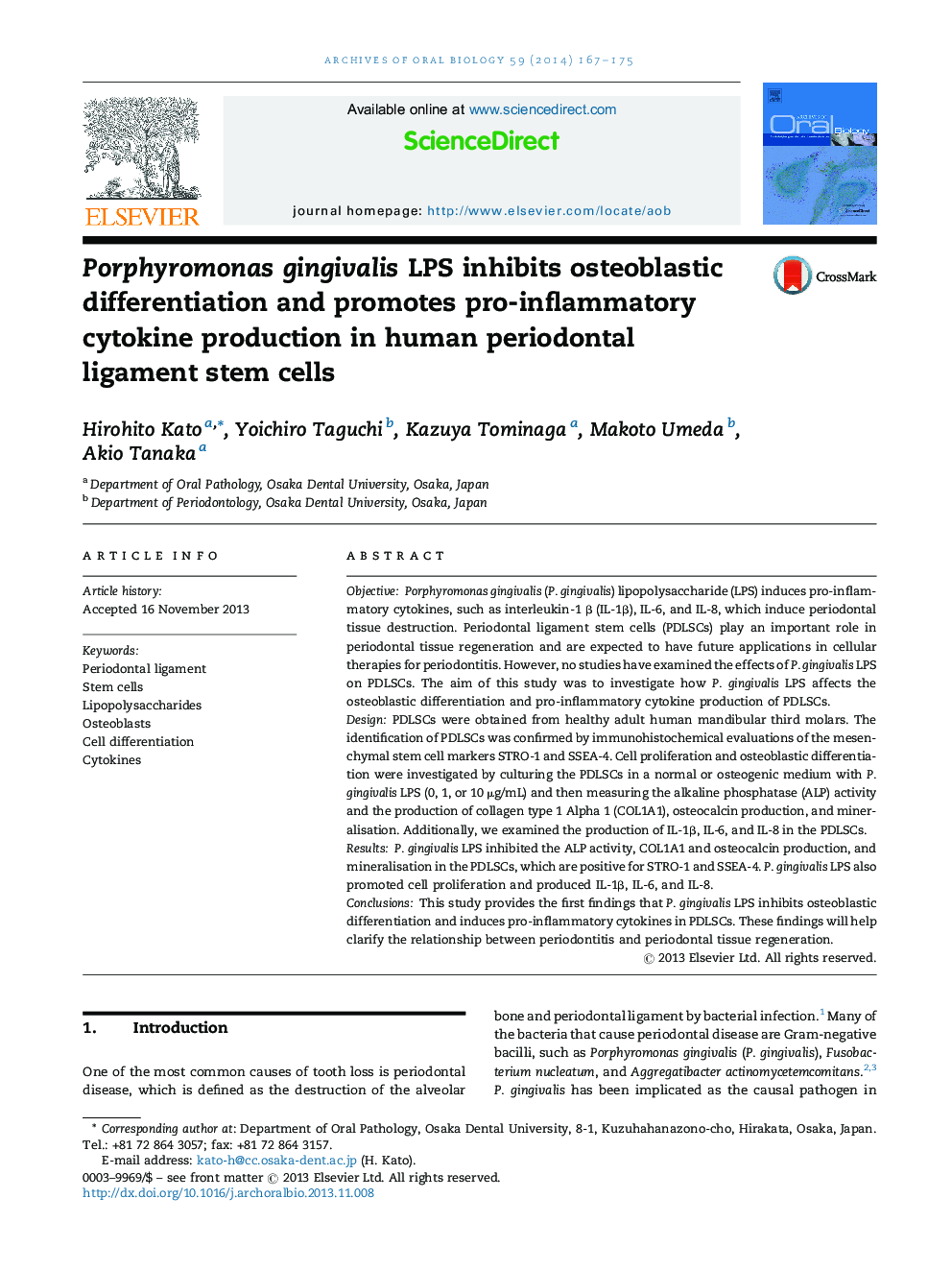| Article ID | Journal | Published Year | Pages | File Type |
|---|---|---|---|---|
| 3120997 | Archives of Oral Biology | 2014 | 9 Pages |
ObjectivePorphyromonas gingivalis (P. gingivalis) lipopolysaccharide (LPS) induces pro-inflammatory cytokines, such as interleukin-1 β (IL-1β), IL-6, and IL-8, which induce periodontal tissue destruction. Periodontal ligament stem cells (PDLSCs) play an important role in periodontal tissue regeneration and are expected to have future applications in cellular therapies for periodontitis. However, no studies have examined the effects of P. gingivalis LPS on PDLSCs. The aim of this study was to investigate how P. gingivalis LPS affects the osteoblastic differentiation and pro-inflammatory cytokine production of PDLSCs.DesignPDLSCs were obtained from healthy adult human mandibular third molars. The identification of PDLSCs was confirmed by immunohistochemical evaluations of the mesenchymal stem cell markers STRO-1 and SSEA-4. Cell proliferation and osteoblastic differentiation were investigated by culturing the PDLSCs in a normal or osteogenic medium with P. gingivalis LPS (0, 1, or 10 μg/mL) and then measuring the alkaline phosphatase (ALP) activity and the production of collagen type 1 Alpha 1 (COL1A1), osteocalcin production, and mineralisation. Additionally, we examined the production of IL-1β, IL-6, and IL-8 in the PDLSCs.ResultsP. gingivalis LPS inhibited the ALP activity, COL1A1 and osteocalcin production, and mineralisation in the PDLSCs, which are positive for STRO-1 and SSEA-4. P. gingivalis LPS also promoted cell proliferation and produced IL-1β, IL-6, and IL-8.ConclusionsThis study provides the first findings that P. gingivalis LPS inhibits osteoblastic differentiation and induces pro-inflammatory cytokines in PDLSCs. These findings will help clarify the relationship between periodontitis and periodontal tissue regeneration.
